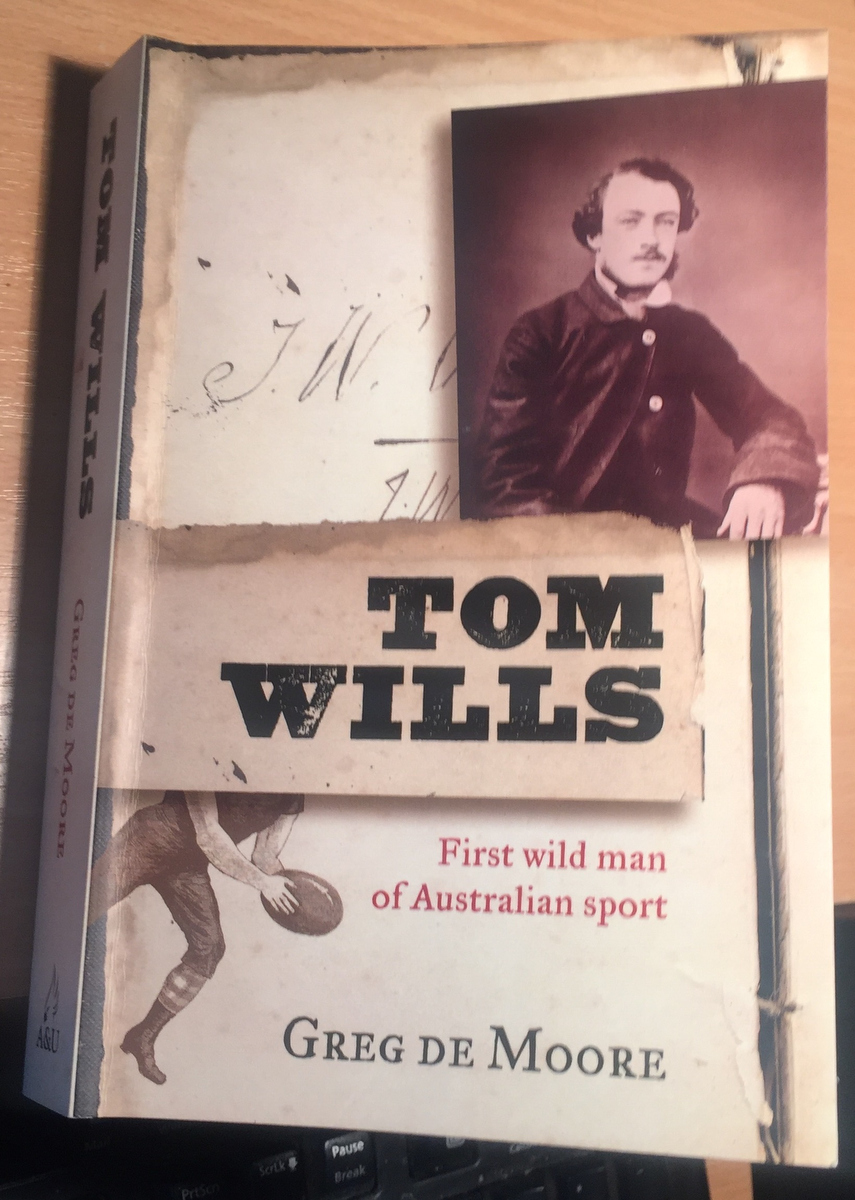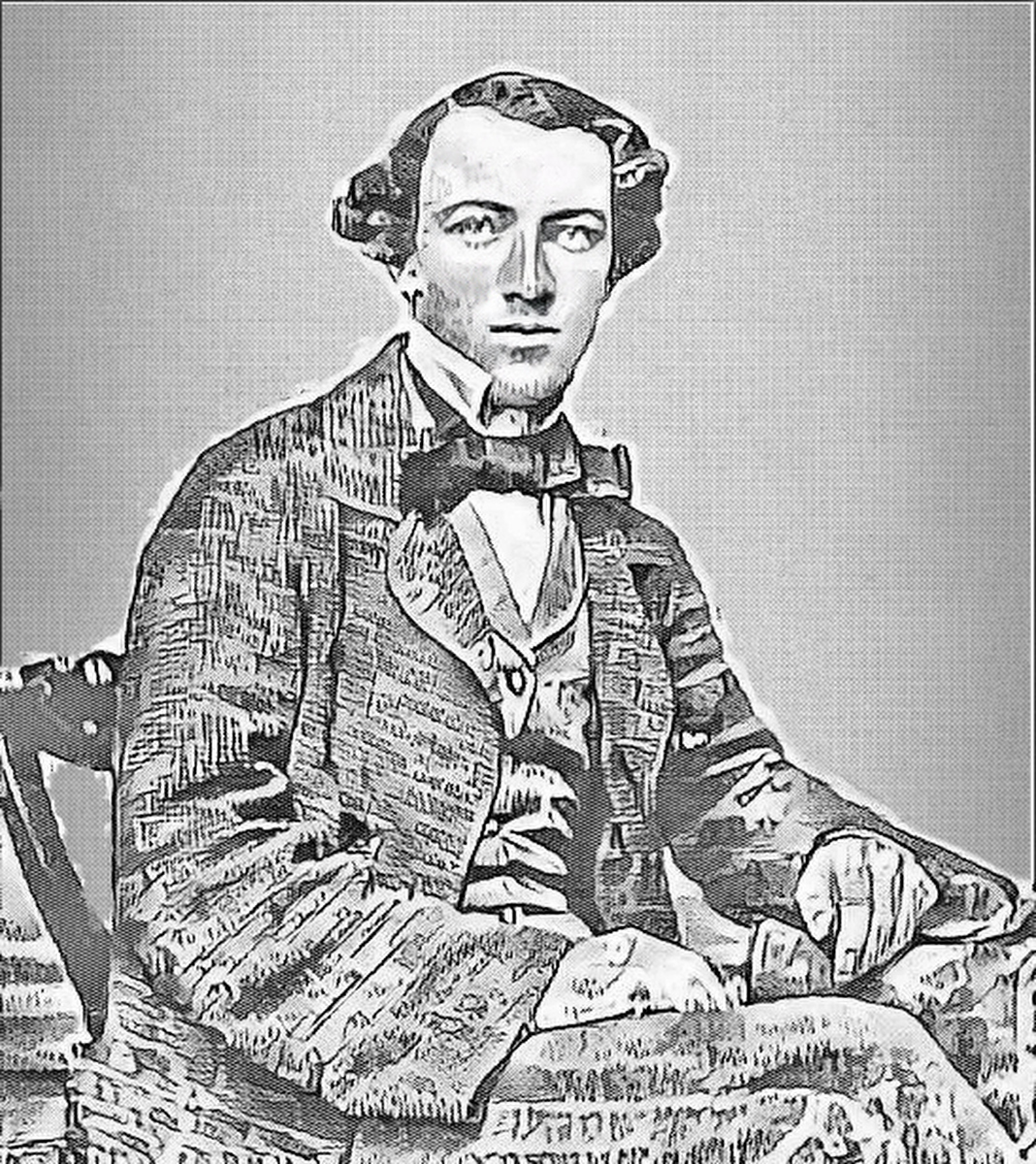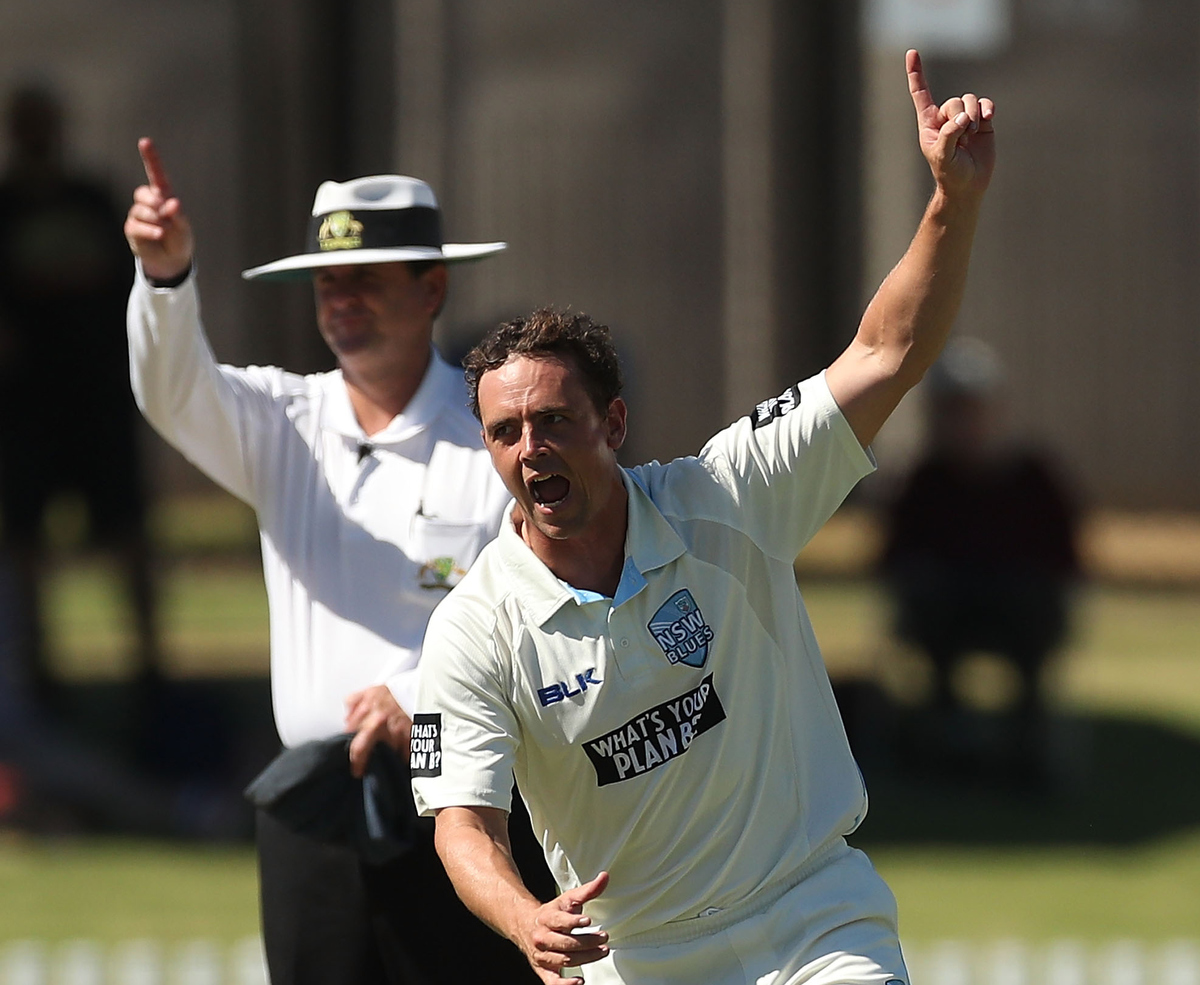HE is rightly hailed these days as the pioneer of Aussie Rules, but in his own lifetime Tom Wills was far better known as a champion cricketer. LAWRENCE MONEY reports:
WHEN Steve Smith won the Allan Border medal last month one headline hailed him as “the best since Bradman”. But what if there had never been a Bradman? Maybe Smith would have been called the “best since Tom Wills”.
That’s Thomas Wentworth Wills, the famous founder of Aussie Rules footy, but less well-known are the prodigious skills he possessed with cricket bat and ball. I recently attended a Melbourne lecture by Greg de Moore, author of the book Tom Wills (Allen and Unwin), a tome that highlights just how good he was.
De Moore, a Sydney psychiatrist, says that Wills was so renowned as a cricketer in the 1850s that some clubs wanted him banned because his “exceptional skills distorted the balance of play” against weaker clubs.

“When he walked on to the field in such games, the cry ‘All bets are off,’ was reported in the press. Betting on matches was rife and Tom’s presence, often as a late inclusion, dramatically altered the odds. But all clubs wanted him when it suited their cause.”
Wills was the pre-eminent Australian cricketer of his era. When he led a Victorian XI against a NSW team in 1858, the Chief Minister of the colony moved to adjust the hours of parliament to allow MPs to attend. “Employees were expected to release their worker during the hours of the match,” says de Moore.
Fifteen thousand spectators (a large crowd back then) attended over three days. Wills took five wickets then, as was his usual practice, went out to bat without the optional leg pads. He was hit in the mouth by skidding underarm from Oswald Lewis and knocked unconscious. After several minutes he rose heroically from the pitch, batted another two hours and at day’s end was 49 not out (a sizeable score in those days of dodgy pitches).
Wills is renowned for his historic letter to Bell’s Life in Victoria magazine, suggesting that cricketers form a “foot-ball” club to help keep fit during winter, the origin of Aussie Rules. But he turned out scores more letters to the press. “Sometimes three a week,” writes de Moore. “His energy was boundless and Melbourne too small to contain it. He wrote more letters to the press than all other cricketers combined”
Educated in England at the Rugby school from the age of 15, Wills had also bombarded the English press in similar fashion and in 1855, as Rugby cricket captain, wrote to Bell’s Life in London magazine suggesting the formation of a rifle club.

In this case the concept was for the “defence of England”. Wrote Wills: “Nothing could add so much to the national security as a general knowledge of the use of a rifle.”
It was regrettable that such a trail-blazer had such a short and tragic life. When Tom was 26, his father Horatio was murdered along with 18 others in the biggest massacre of European people by Aboriginals in Australian history. And in 1880, maddened by alcohol and psychological problems, Tom Wills suicided at age 44 by thrusting a pair of scissors into his heart.
He had been a patient at the Melbourne Hospital and, amazingly, de Moore found that the hospital (now the Royal Melbourne) still had the medical records from that era. After five hours of searching boxes he found the notes for Tom Wills: “They recorded the essence of his mind as it unravelled, the telltale hallucinations and delusion of alcohol withdrawal.”
Equally astounding was de Moore’s discovery of letters at Minerva Creek, a Queensland cattle property run by a Wills descendant, also named Tom. The letters were written by the original Tom Wills during his time in England. Later, at a nearby family homestead, de Moore found a collection of Tom Wills’ school books from Rugby. “Somehow they had miraculously survived,” writes de Moore. “Connecting two alien worlds separated by 150 years and 16,000 kilometres.”
Wills was 21 when he returned to Australia from Rugby and he plunged immediately into his beloved cricket. “Never did a more beautiful athlete step upon the Melbourne Cricket Ground,” writes de Moore.
Lawrence Money has twice been named Victoria's best newspaper columnist by the Melbourne Press Club. He wrote columns for 37 years on the Melbourne Herald, Sunday Age and daily Age -- and in Royalauto and Your Sport magazines -- before retiring in 2016 after a 50-year career in journalism.
He still treads the speaking circuit, does radio gigs, tweets on @lozzacash and chases a long-gone 13 golf handicap. He clings to the eternal hope that the Melbourne Demons will once again win a flag.



Discussion about this post